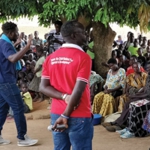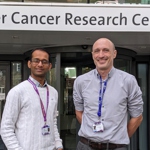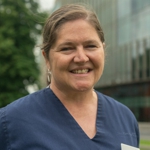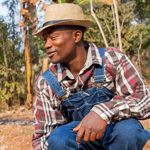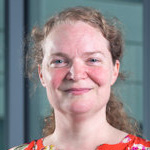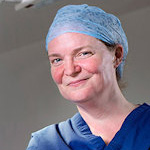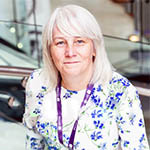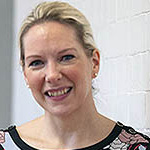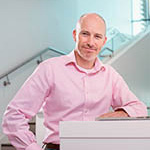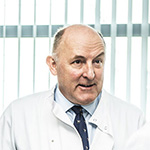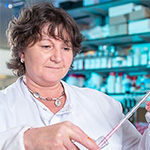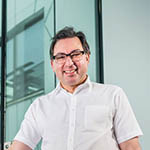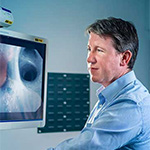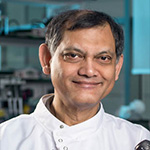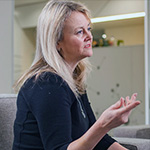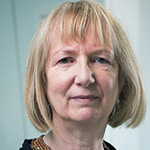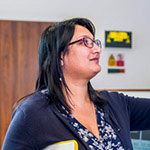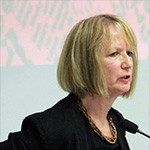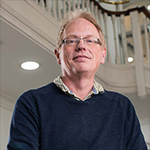From basic science to bedside care, read some of the stories that show how our work matters.
Our faculty is home to hundreds of scientists, clinicians, academics and students working to make new discoveries – and make a difference.
Here are just some of their stories in their own words.
To explore, use the filters below. You can also view our collection of cancer stories.
-

Transforming conversations around cancer through creative storytelling
Breast cancer screening uptake remains disproportionately low among women of south Asian heritage in the UK. Manchester researchers have been using a storytelling tool to help engage these communities.
Read more
-

Investigating the cardiovascular impact of plastic pollution in Indonesia
Air pollution from burning plastic waste is an escalating public health issue, particularly in rural parts of Indonesia. A new study is investigating how this form of pollution contributes to cardiovascular disease risk.
Read more
-

Capturing the stories of the NHS
The University of Manchester’s Stephanie Snow created the NHS at 70 project with the aim of collecting NHS stories from patients, staff and families to create a digital archive of the service’s long and illustrious history.
Read more
-

Investigating the link between weather and chronic pain
For centuries, people with chronic pain have linked their symptoms to the weather, but scientific proof has been limited. Researchers at Manchester have tackled this question with the world’s first smartphone-based study on weather and pain.
Read more
-

Assessing the impact of air pollution exposure in pregnancy on child development and health
A UK-wide project looking at the impact of exposure to indoor and outdoor pollution during pregnancy on baby development and child health.
Read more
-

Setting new standards for healthcare training in Ghana
A training partnership between experts in Ghana and Manchester is looking to tackle the challenges of rising disease burdens, workforce gaps and increasing demand for quality care in Ghana’s healthcare system.
Read more
-

Troubled waters: water-associated disease risk in East African shared landscapes
Our research is investigating how changes in surface water influence zoonotic disease transmission, informing strategies to improve water management and public health in East Africa.
Read more
-

Investigating the impact of air pollution on chronic disease in people living with HIV
Our researchers are uncovering how air pollution exacerbates chronic diseases in Kenyan people living with HIV, informing interventions to reduce health risks in Kenya and beyond.
Read more
-

Building emergency care capacity in Kenya
Emergency health specialists from The University of Manchester are collaborating with partners in Kisii County, Kenya to ensure emergency healthcare for the region meets national standards.
Read more
-

Understanding health outcomes through air pollution
Researchers at The University of Manchester are developing models and tools that are being used to document and predict how environmental changes are impacting on human health.
Read more
-

Engaging with local communities to improve cancer care in Kenya
Researchers at Manchester are forging partnerships in East Africa to better understand local populations and develop the right interventions to reduce inequalities in cancer care.
Read more
-

Bringing greater ethnic equality to prostate cancer research
Manchester researchers are among the first to apply their world-leading genetic and genomic expertise to study the differences in prostate cancer among ethnic groups to deliver more tailored, targeted treatment.
Read more
-

Improving mental health diagnosis through standardised assessment
The GMHAT tool developed by experts in the NHS has become a viable option for UK and international health professionals and organisations needing to make mental health assessments quickly and easily.
Read more
-

A game-changing approach for the treatment of early-stage cervical cancer
University researchers are pioneering a new topical treatment for cervical cancer and forming global partnerships to help more women in developing countries survive the disease.
Read more
-

Mapping limb loss in Uganda
Professor Mahesh Nirmalan has worked with colleagues at the University to increase understanding of who has been affected by conflict in northern Uganda, including those with limb loss, to better target care.
Read more
-

Writing Pakistan's first mental health policy
University of Manchester researchers have drafted the first mental health policy for Pakistan, which is being initially implemented in Sindh Province for its population of approximately 50 million people.
Read more
-

Seeking to reduce future heart disease risk after pre-eclampsia
Our work in the emergency department has helped develop ultra-high sensitivity blood tests and rapid decision-making tools for patients suspected of having had a heart attack, allowing for quicker treatment, improved recovery and earlier discharge.
Read more
-

Combining medical and humanitarian expertise for global health research
Experts in the Faculty of Biology, Medicine and Health are working with the Humanitarian and Conflict Response Institute (HCRI) on global health.
Read more
-

Advancing genomic medicine through international collaboration
A collaboration with Peking University has helped to boost genomic and genetic knowledge and skills in China, and impacted on global healthcare systems.
Read more
-

Identifying sustainable care for depression and anxiety in Indonesia
Researchers at Manchester are collaborating with Indonesian experts through the STAND-Indonesia project to help identify potential care pathways and treatments for depression and anxiety.
Read more
-

Turning to digital technology to improve healthcare
Manchester is one of three universities working together in the fast-moving field of digital health, thanks to an international collaboration with a focus on translational research.
Read more
-

Boosting Egyptian medical education with Manchester expertise
Two Egyptian universities are collaborating with The University of Manchester to enhance their medical training programmes and equip students with the skills they need to work as a doctor internationally.
Read more
-

New treatment for swallowing problems after stroke and brain injury
Find out how electrical stimulation is being used to help people with swallowing difficulties following a stroke or brain injury.
Read more
-

Adapting autism interventions to meet health needs in South Asia
A social communication intervention developed from original Manchester-led UK research has been adapted for low-resource settings and non-specialist delivery in two regions in South Asia to help boost support for families with young autistic children.
Read more
-

Improving treatment standards for rarer cancers
Research at The University of Manchester has helped grow the evidence base for biliary tract cancers and set international treatment standards that have improved survival rates.
Read more
-

Building cancer partnerships in Kenya
Manchester experts have been involved with a partnership with the Kenyan government to help uplift healthcare practices in the country based on models developed in Greater Manchester.
Read more
-

Building global health networks to tackle rare genetic disorders
Rare conditions are thought to affect 1 in 17 people in the UK. There are approximately 7,000 known rare conditions, such as Huntington's disease and cystic fibrosis. Many are genetic, but understanding and treatment of these diseases varies around the world.
Read more
-

Tackling childhood leukaemia in India
When Professor Vaskar Saha saw the impact of childhood leukaemia in India, he asked: who can take on this challenge? Having already helped families across Europe to beat the disease, he knew that this was his calling.
Read more
-

Developing crucial clinical pharmacy skills in China
Clinical pharmacy is a growing field within the Chinese healthcare sector. A teaching collaboration between The University of Manchester and China Pharmaceutical University is enabling Chinese students to develop the skills they need to work in clinical pharmacy.
Read more
-

Shaping the future of health care in Rwanda
Rwanda has big ambitions to transform health care in Sub-Saharan Africa. Olivier Ndahiriwe, an Equity and Merit Scholar at Manchester, aims to make these ambitions a reality.
Read more
-

Increasing understanding of congenital heart disease and building research capacity in Africa
We are using this information to help build capacity to conduct genome wide studies of congenital heart disease in low- and middle-income countries and improve early diagnosis in these settings. The early detection of congenital heart disease allows for greatly improved clinical outcomes and reduces the risk of complications arising later in life.
Read more
-

Bringing healthcare education into schools
Pharmacy lecturer David Allison's service learning workshops see Manchester students bring healthcare education into schools and encourage pupils to consider higher education. David tells us why this has been such a success after winning a social responsibility award for his project.
Read more
-

Training Malawi’s first audiologists
In the UK there is one audiologist for every 25,000 people. In Malawi, audiology services for the entire country were run by just a few foreign volunteers. That was until four Malawian students travelled to Manchester to train as the country’s first qualified audiologists.
Read more
-

Designing computer games to prevent falls
Falls can lead to life-changing injuries, premature care home admittance and are the most common cause of injury-related death for this age group. Dr Emma Stanmore is working with local NHS trusts to deliver falls prevention exercises in the form of a computer game to help older people avoid injury and increase their mobility.
Read more
-

Dental care for refugees
Escaping persecution can be one of the most dangerous, traumatising experiences in a person’s life. During their journey to safety, it can be especially challenging for refugees and asylum seekers to access important services such as dental care.
Read more
-

Psychosis support at the touch of a button
Up to 2% of the UK population will experience psychosis in their lifetime, with symptoms including hallucinations and intrusive voices, but access to mental health support services can be limited. A team at Manchester have developed Actissist, an app to support people in the early stages of psychosis when they need help.
Read more
-

Fishing for clues to how air pollution affects the heart
Research into the effects of air pollution on heart health is growing as more people call for action on climate change around the world. One Manchester researcher has used her expertise in animal physiology to show how pollutants can have the same negative impact on human health as they do on marine life.
Read more
-

Building genomic research links with South Africa
Novel genomic technologies could solve some of Africa's most pressing healthcare challenges, including global diseases and diseases of poverty that are rare in more developed countries. This has been the focus of a partnership between the Universities of Manchester and Cape Town in disease genomics, particularly in heart disease.
Read more
-

Rapid testing for acute coronary syndromes
Our work in the emergency department has helped develop ultra-high sensitivity blood tests and rapid decision-making tools for patients suspected of having had a heart attack, allowing for quicker treatment, improved recovery and earlier discharge.
Read more
-

Tackling inequalities in mental health
People of African and Caribbean backgrounds are statistically more likely to be diagnosed with schizophrenia and psychosis than other ethnic groups in the UK, but the least likely to access psychological care. Professor Dawn Edge is on a mission to change this.
Read more
-

Spotlight on Kenya
Collaborations between experts in Kenya and Manchester are working to address key health issues in the African country, particularly in the area of cancer.
Read more
-

Improving patient adherence to high blood pressure medication
We developed a urine test to determine if patients with high blood pressure are taking their medicines, so healthcare professionals can work more effectively with them and reduce complications from high blood pressure later in life.
Read more
-

Developing tools to help predict future risk for diabetes and heart attack
Using large patient datasets, we are developing tools to enable GPs to identify which patients are at greatest risk of developing heart and circulatory disease as a consequence of their diabetes, and the risk of future heart attacks in patients who have previously had a heart attack.
Read more
-

Suicide prevention in action
On average there is one death by suicide every two hours in the UK. It is the leading cause of death among young people aged 20 to 34 and the highest suicide rates occur in men aged between 40 and 44 years old.
Read more
-

Crowdsourcing action on antimicrobial resistance
What could be the most effective way of spreading awareness of one of the biggest issues facing the world today? Engaging the public and giving them the tools to pass the message on to more people, according to one Manchester academic.
Read more
-

Understanding heart damage caused by turbulent blood
Researchers have developed more accurate computer models of blood flow through vessels and across heart valves. These will help improve surgical approaches to correcting blood vessel and heart valve disorders and enable clinicians to better interpret MRI images.
Read more
-

The ladies in the van
Permanent hearing loss affects approximately one in a thousand babies in the UK. Audiology researchers from Manchester are taking a unique approach to discover the most effective tests to help these children and their families.
Read more
-

From student to teacher
University can feel like a big place for new students but people like Dr Doron Cohen, lecturer and first year lead for BSc Psychology, help to make the big pond feel smaller. His time at Manchester has seen him go from undergraduate to researcher to teacher, and his current work explores mental health in psychology students.
Read more
-

Increasing the availability of a simple blood test to diagnose pre-eclampsia
Our researchers have developed better diagnostic tests for pre-eclampsia, a potentially serious condition occurring in pregnancy that can affect both the mother and baby, and are assessing new treatment options to reduce the risk of complications.
Read more
-

Making a difference through dentistry
For a quarter of a century, Sri Lanka played host to a civil war which claimed the lives of more than 100,000 people. One man who managed to flee in the early days of the conflict is Dr Senathirajah ‘Raj’ Ariyaratnam, who now uses his experiences to train Sri Lanka’s dentists and address dental health inequalities closer to home.
Read more
-

Cancer stories collection
Our researchers and clinicians dedicate their careers to the prevention and treatment of cancer, and the care of patients. Their individual and collective quests for breakthroughs that will benefit society are the inspiration behind this collection of articles.
Read more
-

Helping transgender and non binary people find their voice
For those transitioning, having a voice that matches their gender identity is an important part of feeling comfortable and confident. Dr Sean Pert, Senior Lecturer in SLT, runs regular voice and communication workshops with his students at the LGBT Foundation in Manchester.
Read more
-

Blood vessel breakthrough is major step towards dementia treatment
Our researchers have identified an important role for two proteins in the blood vessels of the brain which appear to be linked to the development of brain injury in Alzheimer’s disease and offer the prospect of new treatments for this condition.
Read more
-

Helping children in conflict
The armed conflict in Syria broke out in 2011, causing the largest humanitarian crisis since the second world war. The lives of more than 8 million children have been put in danger, their worlds turned upside down by witnessing destruction, violence and death.
Read more
-

Sneezing for science
Allergies are as much a part of British summertime as Wimbledon and wet weekends by the seaside, but they are also on the rise with hay fever affecting an estimated one in five people in the UK. Now a team from The University of Manchester is trying to understand what is contributing to the seasonal misery of millions.
Read more
-

CRISPR: The future of genetic research at Manchester?
Clustered Regularly Interspaced Palindromic Repeats isn’t something that rolls off the tongue, yet it is set to be the biggest scientific breakthrough of the 21st century. Better known as CRISPR, this technique allows scientists to modify and change the genetic makeup of cells, possessing far-reaching potential to treat genetic disease and enhance human health.
Read more
-

Improving long-term support for stroke survivors
Manchester researchers have also developed a toolkit that enables healthcare professionals to appropriately evaluate new and unmet needs of patients who have had a stroke and enable appropriate care to be implemented and support post-stroke recovery.
Read more
-

Patient power: Involving the public in cancer research
Every two minutes, someone in the UK is diagnosed with cancer. With one in every two people likely to get a cancer diagnosis at some point in our lives, it is a disease that affects us all.
Read more
-

Improving care for intracerebral haemorrhage patients
Intracerebral haemorrhage is a life-threatening type of stroke affecting over 10,000 people in the UK each year. We developed a care bundle based on our research which reduced patient deaths by a third. It is now in use at 28 hospitals across the north of England.
Read more
-

Rapid genetic testing to reduce risk of secondary strokes in people with CYP2C19 gene mutations
A new genetic test to identify gene mutations that could reduce the effectiveness of a drug commonly prescribed after ischaemic stroke.
Read more
-

New digital heart failure care pathway reduces hospital admissions in Greater Manchester
We used remotely monitored health data to identify deterioration in heart failure patients and issue real-time alerts to hospital staff, allowing for timely specialist intervention and a reduction in the risk of hospitalisation and death.
Read more
-

Identifying and managing cardiovascular risk in rural Indonesian communities
Our research has become part of a public health programme in Indonesia, where cardiovascular disease accounts for 1 in 3 deaths. We developed an intervention which achieved a reduction in the number of people at high risk and an estimated 3,750 people had an extended life expectancy as a result of the trial.
Read more
-

Transforming care for people with inherited blindness
Our research into the genetic causes of blindness has revolutionised clinical practice – leading to faster, more precise diagnoses and tailored genetic counselling for thousands of patients worldwide.
Read more
-

Investigating the impact of polyaromatic hydrocarbon pollutants on heart function
Our researchers are aiming to learn more about the effects of polyaromatic hydrocarbon pollutants on our health.
Read more
-

Enabling access to safe and effective autoimmune disease treatments
We developed a series of world-leading biologic treatment registers to monitor the safety of drugs used to treat conditions such as rheumatoid arthritis. The research has been used to influence national treatment guidelines and increase access to effective treatments.
Read more
-

Driving innovation in cancer therapy
Our research into personalised forms of immunotherapy has undergone rapid commercialisation to deliver life-saving results for patients worldwide.
Read more
-

Shaping healthcare guidelines to prevent and reduce stillbirths
Research conducted at The University of Manchester into risk factors associated with stillbirths has influenced UK and international health policy, helping to educate parents and save lives.
Read more
-

Bringing proton beam therapy centres to the UK
The UK’s first NHS high-energy proton beam therapy centre opened at The Christie Hospital in 2018. Our research was vital in helping to bring this technology to the UK, enabling more patients to access proton therapy for some of the most difficult-to-treat cancers.
Read more
-

Changing understanding and treatment of Aspergillus disease globally
More than 300 million people worldwide suffer from serious fungal infections and around two million die each year. Our research is improving patient survival and quality of life, from diagnosis though to drug development.
Read more
-

Exploring the health of global gig workers
Manchester researchers are looking at the health and safety implications of gig working in the UK and China.
Read more
-

Sharing ideas to counter the cost of conflict
An interdisciplinary team at Manchester has been working to make a difference to people across Northern Uganda facing the life-changing problem of major limb loss (MLL).
Read more
-

Collaborating for a cure for a rare form of leukaemia
A dynamic collaboration between Dr Dan Wiseman, a consultant haematologist, and Dr Kiran Batta, a basic biologist, is changing the narrative around chronic myelomonocytic leukaemia (CMML).
Read more
-

From diagnosis to discovery: transforming care for cancer of unknown primary
A collaboration with the CRUK National Biomarker Centre could help patients diagnosed with cancer of unknown primary (CUP).
Read more
-

Sharing oesophageal cancer lessons globally
Manchester has formed a collaboration with the Kenyatta University Teaching, Referral and Research Hospital (KUTRRH) focused on improving oesophageal cancer survival.
Read more
-

Changing lives and national policy
Professor Emma Crosbie discusses research into the link between Lynch syndrome and womb cancer, and how this has changed NICE guidance on testing for the syndrome.
Read more
-

Using graphene to tackle cancer
Nanomaterials like graphene have the potential to offer advanced tools for the early diagnosis, progression and treatment of cancer. Kostas Kostarelos, Professor of Nanomedicine, tells us about his work in this area.
Read more
-

A multidisciplinary approach to cancer research in Manchester
Team science, which sees experts in different fields work together on a single research question, is yielding exciting results. Professor Rob Bristow explains why he sees this approach as transformative to the cancer research environment.
Read more
-

Driving changes in cervical screening
Ground-breaking research in cervical screening by Professor Emma Crosbie outlines the case for a Prevention and Early Detection (PED) approach.
Read more
-

Using nanotechnology for targeted delivery
Professor Kaye Williams' research involves exploiting nanotechnologies in different ways across her research programmes in the Division of Pharmacy and Optometry. Here, Kaye gives us an overview of how they are being used.
Read more
-

A meeting of giants
A collaboration involving cancer and advanced materials is taking shape to make huge advances in the earlier detection of cancer. Lead supervisor Professor Sarah Cartmell discusses the implications of the new programme.
Read more
-

Taking discovery research up a gear
Professor Stephen Taylor, Head of the Division of Cancer Sciences, explains how a combination of high-quality basic research, translational science, drug discovery and the 'Manchester way' of doing things are yielding results.
Read more
-

Reducing the risk
Professor Gareth Evans' research is focussed on neurofibromatosis and breast cancer. His research has led him to conclude that risk stratification offers the best way of targeting prevention and early detection (PED) approaches.
Read more
-

Bringing tomorrow’s medicines to patients today
Working together to scale up cancer research activity and develop best practice is what Dr Fiona Thistlethwaite considers is the answer to increasing Manchester’s ability to deliver cell therapy clinical trials.
Read more
-

An immunology revolution
Dr Santiago Zelenay is using his background in fundamental immunology to understand how the immune system can be used to design better therapies for cancer patients.
Read more
-

Bringing oncology and immunology together
Professor Tracy Hussell discusses the important link between immunology and cancer, and why Manchester is the perfect place to lead on research that could lead to better patient outcomes.
Read more
-

From bedside to bench and back again
Focusing on ovarian cancer and drug development, Professor Gordon Jayson tells us why Manchester’s ability to run multiple novel clinical trials is the key to us becoming recognised as international cancer research leaders.
Read more
-

Manchester’s place in tomorrow’s world
Professor Karen Kirkby, Director of the UK’s first proton beam and research centre, outlines how Manchester is pioneering ground-breaking research into the next generation of cancer challenges.
Read more
-

Influencing NHS policy
A change to lung cancer screening policy has been announced following the results of an unusual scheme pioneered in Manchester. Dr Philip Crosbie outlines why Manchester was the perfect place to trial the study.
Read more
-

Tackling reduction at home
Professor Andrew Renehan talks about his home-focused cancer research programme, which is resulting in global benefits.
Read more
-

Making a difference: Changing lives and meeting need
Professor Vaskar Saha’s research is helping to significantly reduce mortality rates in children being treated for cancer in India. Here he talks about his mission to transfer global standards of care to a low resource country.
Read more
-

Developing pioneering treatments
Professor Caroline Dive CBE and her team are working with The Christie, developing ‘liquid biopsies’ to hunt cancer cells that have broken free from tumours and are circulating in the bloodstream. Here she tells us why her three year stay in Manchester has turned into 19 and counting!
Read more
-

Personalisation: Genetic signatures for radiotherapy
Professor Catharine West tells us how her decision to come to Manchester enabled her to pioneer developments in personalised radiotherapy.
Read more
-

Pioneering treatment
Clinical oncologist Professor Ananya Choudhury is leading one of the world’s most innovative radiotherapy treatment machines here in Manchester, one of the first seven of its kind globally. Here she tells us how the MR-linac will transform patient outcomes.
Read more
-

Paving the way for better prostate cancer treatment
Countries, including the UK, have been raising awareness about men’s health and diseases such as prostate and testicular cancer as part of the Movember campaign. Professor Catharine West tells us about the discovery of a new targeted and improved form of prostate cancer treatment.
Read more
-

Thinking differently
Andy Brass, Professor of Bioinformatics outlines the diversity of the data and expertise that is now needed in cancer research, from computer science through to medicine and genomics.
Read more
-

Aligning research to improve prostate cancer patient outcomes
A Canadian native and long-time supporter of the Movember Foundation, Professor Rob Bristow tells us about his ambitions around prostate cancer research.
Read more
-

Better together
Professor Tim Illidge believes that it is the combination of clinical and scientific research teams, and their multidisciplinary working, which is driving innovations in personalised cancer medicine.
Read more

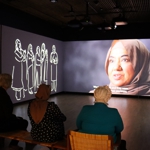

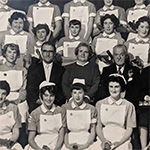


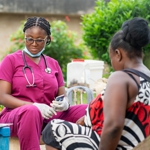
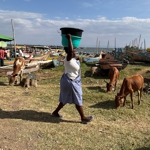
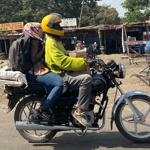
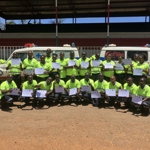


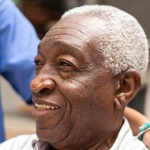


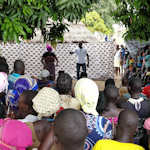







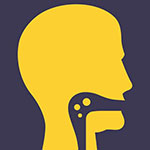


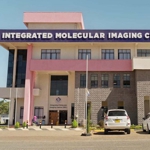

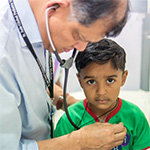
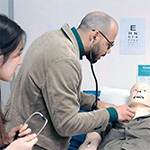
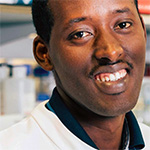

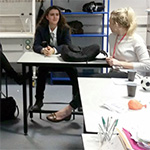
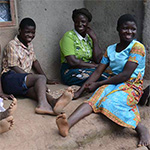
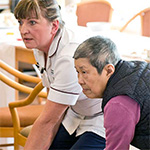
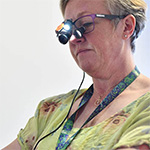



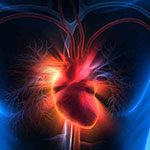

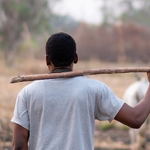



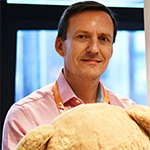

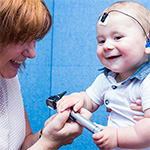
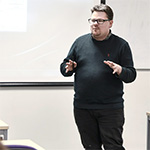

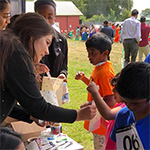




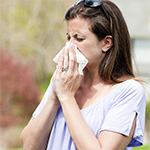
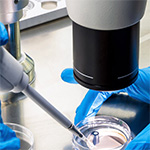
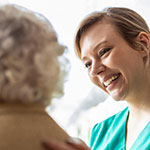
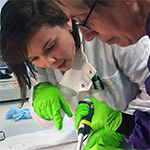
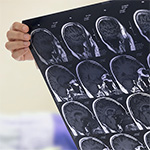

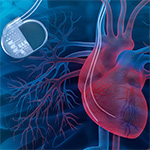


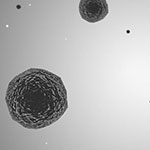

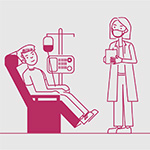


-blank-150x150-edited-160421.jpg)

